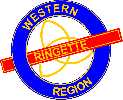News and Announcements
September Executive Meeting Minutes Click HERE
St. Clements Ringette Association
Wednesday, September 2
7:30-9:30 pm
Nosal Family home
Attendance:
Terry Nosal (President)
Scott Nosal (Vice President and Ice Manager)
Heather Barnard (Past Secretary)
Melinda Horst (Registrar)
Kelly Henderson (Equipment Manager)
Absent:
Wendy Sutherland (Secretary)
Vickie Murray (Treasurer)
Discussions:
Heather Barnard read the last meeting minutes – passed.New executive members for this season – Kelly Henderson, Wendy Sutherland, Vickie Murray
Finance – nothing to report at this time.
Equipment – the purchase of new rings will be discussed at the next meeting. Theyare available at the Elmira Home Hardware for approx. $5.00 each.First Aid Kits need to be checked (remember to check any best before dates) Shirts are good… 1 sponsor for the whole set.
Power skating
will run October 23rd – February 5th. Scott Stratken is the instructor; cost is $120. Kelly Henderson to do the paper work for the police checks on the coaches.
Petites paid $5 for 2 ice times; outside players paid $5.00 per ice time;
Tween AA paid $20 for Ref.
Learn to Skate Registration
(Coach: Terry Nosal) Currently stands at 27. Fees are $125.
The first game is proposed for Tuesday Oct. 11 at 6pm, in Wellesley.
Bunny Registration (Coach: Terry Nosal, Asst. Doug Ridge)
Currently stands at 17. Fees are $175.
Novice Registration (Coach: Paul Hildebrand, Asst. Terry Nosal)
Currently stands at 12. Fees are $225. Terry to confirm registrations.
Petit A/AA (Coach: Chuck Weber, Asst.Terry Nosal, Trainer: Ken Metzger, Mgr.Vicki Murray)
Currently stands at 12. Fees are $275
Tween AA (Coach: Terry Nosal, Asst. Scott Nosal, Trainer: Bob Scott, Mgr. Brad Straus)
Currently stands at 11. Fees are $275
The New Website for St. Clements Ringette www.eteamz.com/stclementsringette
A 2 hour ice time coaching session may be planned. Cost $20-$25 each.
The next meeting is scheduled for Nov. 30th at 7:30pm at the Arena Board Room.
QUESTION…When a child is pulled up a level 3 times he must stay at that level. Does this rule still apply? Terry to look into.
Click on the LOGO below to check out Western Region A/AA Scored Schedules

